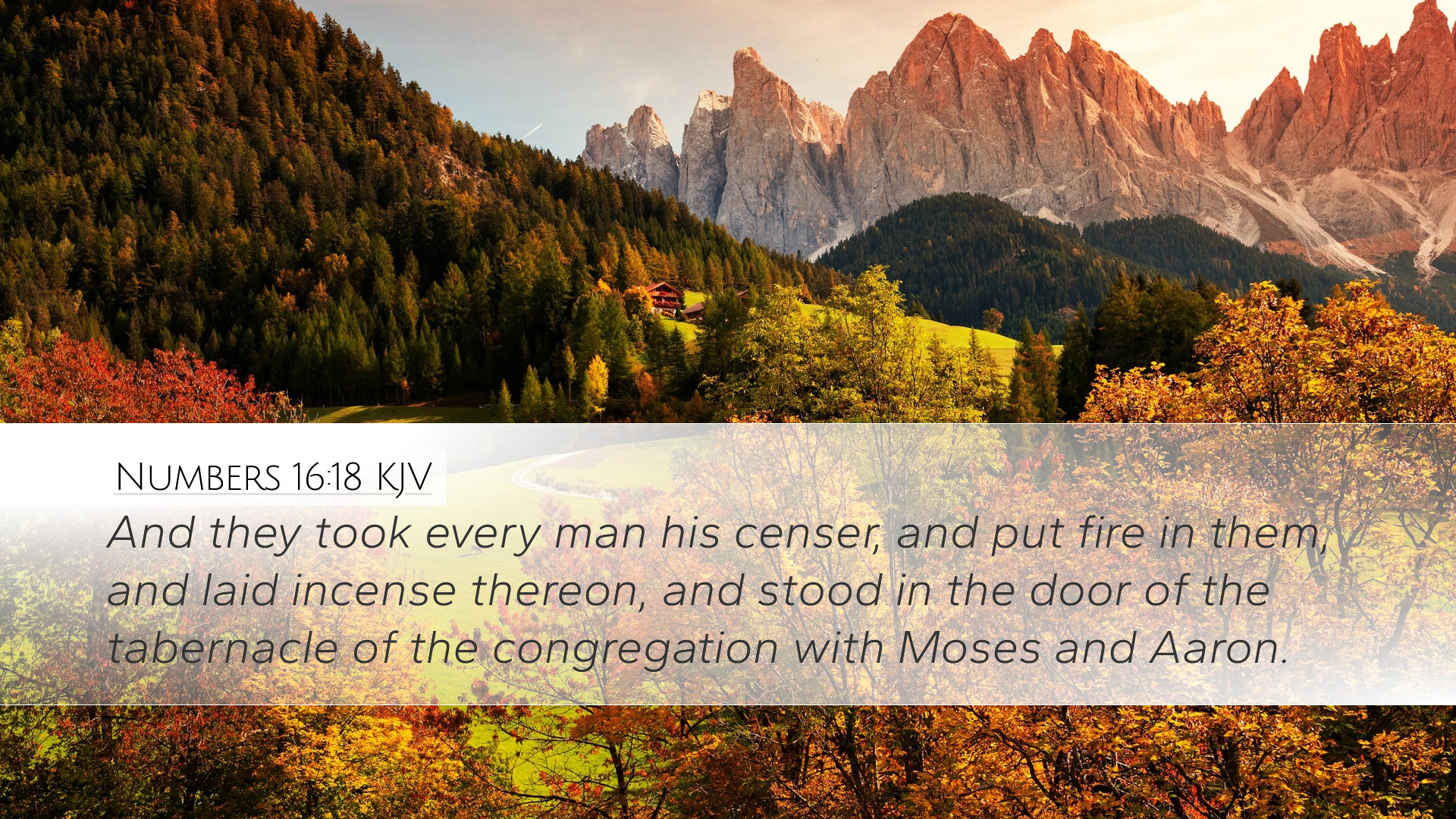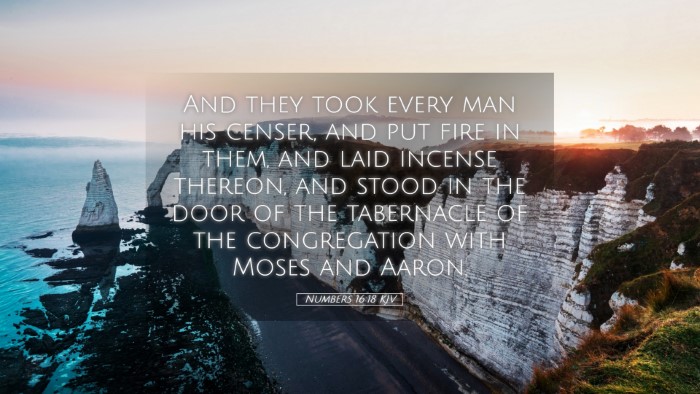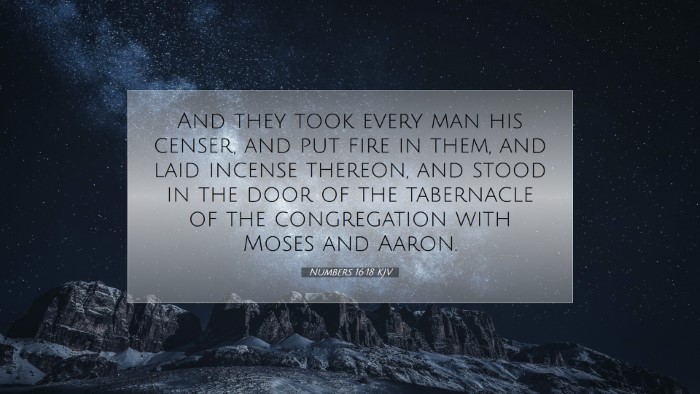Commentary on Numbers 16:18
Bible Verse: "And they took every man his censer, and put fire in them, and laid incense thereon, and stood in the door of the tabernacle of the congregation with Moses and Aaron." (Numbers 16:18 KJV)
Contextual Overview
Numbers 16 marks a significant rebellion against Moses’ leadership, led by Korah, Dathan, and Abiram, who contested the legitimacy of Moses and Aaron's authority. They challenged the established order within the Israelite community, claiming that all the congregation was holy and questioning the unique role of the priesthood.
Analysis of the Verse
This verse demonstrates a critical moment of conflict, where the rebellious leaders gather at the tabernacle with their censers to offer incense. This act is emblematic of their challenge to God’s ordained structure.
Insights from Commentaries
Matthew Henry
Henry emphasizes the symbolism of the censer, describing it as an instrument of intercession and worship. He notes that the act of offering incense illustrates an attempt to usurp the divine order set by God. The rebellion signifies not only a challenge to Moses but ultimately a challenge to God's authority.
He highlights that, although the rebellious leaders sought to take part in the priestly functions, their intentions were not holy, but rather motivated by pride and envy. This illustrates a fundamental lesson about the dangers of self-appointment in spiritual matters.
Albert Barnes
Barnes details how the use of censers by the instigators was an act of extraordinary presumption. He points out the significance of their choice to stand at the door of the tabernacle, which was the place of God’s presence. This was an act of direct confrontation against God’s chosen leadership.
He also mentions the consequences that will follow, underscoring that despite their fervor, God does not accept worship that violates His preordained structures. Barnes notes that God’s rejection is imminent for those who attempt to offer incense without His approval and anointing.
Adam Clarke
Clarke offers a particular focus on the incense itself, explaining its traditional association with prayer and supplication to God. He argues that the act itself, while seemingly innocent, becomes a grievous offense when performed by individuals without divine sanction.
He provides a broader theological implication: the potential for spiritual leaders to misuse their positions, turning worship into a vehicle for personal ambition rather than genuine service to God and His people.
Theological Implications
The events surrounding Numbers 16:18 serve as a cautionary tale regarding the nature of authority within the church. The rebellion of Korah et al. illustrates how envy and ambition can corrupt one's intentions when it comes to serving God. The attempt to claim priestly duties without divine calling communicates the severe consequences of ambition unchecked by biblical authority.
Lessons for Today
- The Holiness of God: Every act of worship must stem from a heart aligned with God’s will and under His authority.
- Divine Order: Understanding and respecting the roles and responsibilities established by God is crucial for maintaining spiritual health within a congregation.
- Heart Condition: The motivations behind our service and worship are as important as the acts themselves. God judges not only the action but the heart from which it flows.
- Accountability: Leaders must be held accountable to God’s Word. The consequences of neglecting this accountability can be disastrous for individuals and communities alike.
Conclusion
Numbers 16:18 serves as a rich source of reflection for pastors, scholars, and students of the Word. It invites careful consideration of our roles in leadership, worship, and community dynamics. The insights from various commentaries urge us to examine our hearts and motivations and to aspire for integrity in our service to God and His people.


